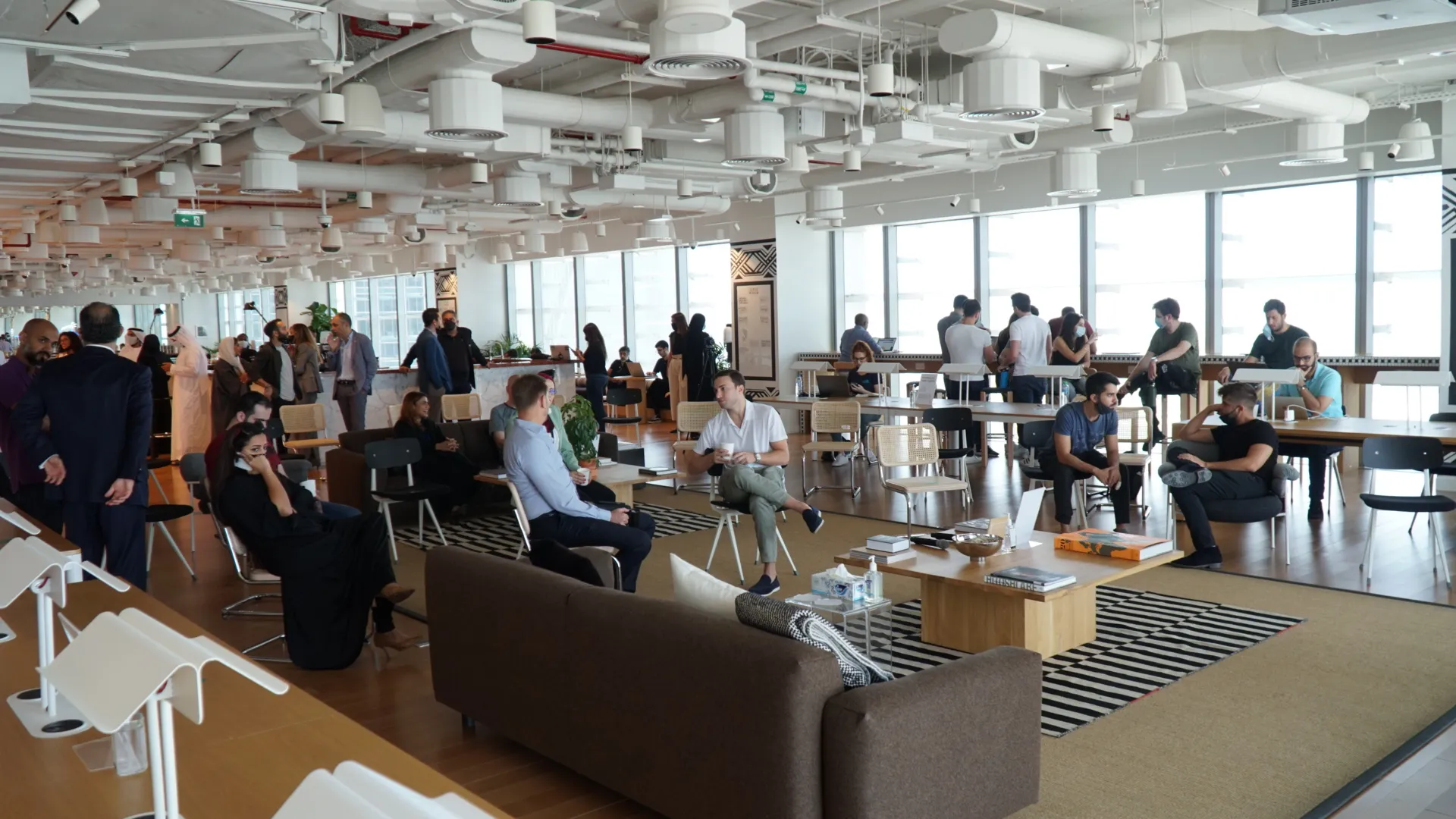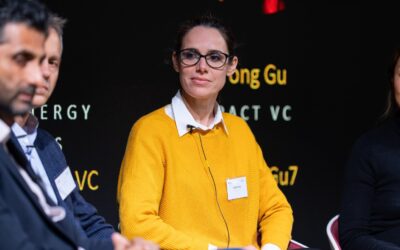OPINION by Jaap Bastiaansen from Nexus Climate.
For centuries, the Dutch have been pioneers in innovative solutions, especially when it comes to managing the constant threat of rising water levels. As a low-lying country, the Netherlands has been at the forefront of engineering feats like dikes and canals that have safeguarded its lands from the encroaching sea. Today, with climate change accelerating and the world grappling with the consequences of rising sea levels, the Dutch are once again stepping up. Their long history of battling water has made them natural leaders in climate tech innovation, creating a vibrant ecosystem where startups can develop groundbreaking solutions to global environmental challenges.
In modern times the Netherlands has transformed into a hub for cutting-edge climate tech startups, with Dutch innovators at the forefront of this essential industry.
The Dutch Model of Climate Tech Leadership
The Netherlands ranks fourth in Europe for startup value creation and is home to one of Europe’s fastest-growing hubs—Amsterdam. With over 564 startups per one million inhabitants, the Netherlands stands alongside global leaders like Sweden, the UK, and the US in terms of startup density. However, the country’s success in the climate tech sector is driven by more than just numbers. It is built on a deeply ingrained culture of innovation, particularly in response to environmental challenges.
Techleap, a non-profit organization, partially funded by the Ministry of Economic Affairs and Climate Policy, is leading the charge in accelerating the growth of Dutch tech startups, particularly in the deeptech and climate tech sectors. According to Techleap’s 2024 State of Dutch Tech report, Dutch tech startups raised €1 billion in deeptech funding in 2023 alone, with a 14% increase in funding compared to a broader decline in European tech investments. Deeptech companies, often rooted in academic research, are vital to the Netherlands’ leadership in areas like renewable energy and sustainable agriculture.

The Netherlands has a buoyant climate tech scene.
Dutch climate tech companies are supported by a unique mix of government policies, entrepreneurial culture, and technical expertise. This has enabled the country to punch above its weight in key sectors such as water management, renewable energy, and sustainable agriculture. Notably, the country is responsible for 2.1% of the world’s research output, despite making up only 0.2% of the global population.
Through initiatives like Techleap, the Netherlands continues to foster a vibrant climate tech ecosystem by connecting entrepreneurs, policymakers, and investors. Techleap’s data-driven approach not only benchmarks Dutch performance against global leaders but also highlights the areas that need improvement, such as late-stage funding and talent acquisition.
Could the Dutch Model be Replicated in Other Regions, Like MENA?
The success of the Dutch startup ecosystem, particularly in the climate tech space, offers valuable lessons for other regions grappling with environmental challenges. The Middle East and North Africa (MENA) region, for instance, faces pressing issues related to water scarcity, rising temperatures, and energy transition.
MENA is already working to build resilient ecosystems, with Abu Dhabi’s Hub71 leading the charge. Since its inception five years ago, Hub71 has onboarded more than 190 startups, collectively raising AED 5.4 billion (USD 1.47 billion) in venture capital. As a testament to its rapid growth, Hub71’s startup community has created over 1,100 jobs and generated AED 3.5 billion (USD 1 billion) in revenue. This positions Abu Dhabi as the fastest-growing startup ecosystem in the region, aligning with the UAE’s goal of becoming an Entrepreneurial Nation by 2031.
In 2023, Hub71 launched two new specialist ecosystems—Hub71+ Digital Assets and Hub71+ ClimateTech—to accelerate innovation in sectors crucial to global sustainability goals. During COP28 UAE, Hub71+ ClimateTech was inaugurated, underscoring the UAE’s commitment to fostering climate-focused startups. By partnering, Hub71 ensures that these ecosystems are equipped to scale and make meaningful contributions to the global climate agenda.
The UAE’s vision for transforming itself into an entrepreneurial nation by 2031 is backed by initiatives such as Hub71’s three core programs: Initiate, Access, and Bright. These programs cater to startups at different stages of growth, providing comprehensive support to scale them internationally. Through this systematic approach, the UAE is nurturing talent, attracting global capital, and setting the foundation for a thriving innovation ecosystem.

Hub71 is a leading within the start-up community in Abu Dhabi.
Learnings from the Dutch Experience: What MENA Needs to Do
While the Dutch model provides an inspiring blueprint, replicating it in the MENA region requires overcoming several key hurdles:
- Government Support and Policy Alignment: The Netherlands thrives due to strong government backing, facilitating funding, infrastructure, and a supportive regulatory environment. While the MENA region has seen progress in this area, particularly in the UAE and Saudi Arabia, policy alignment across countries remains fragmented. A more cohesive, regional strategy will be key to building a thriving climate tech ecosystem.
- Access to Talent and Education: The Netherlands benefits from a highly educated, multilingual workforce, as well as world-class universities that generate deep tech research. In contrast, MENA countries often face challenges related to developing and retaining local talent, particularly in STEM fields. Establishing stronger connections between academia, industry, and government in the MENA region will help build the talent pipeline needed for climate innovation.
- Collaboration Between Public and Private Sectors: The Dutch success story is one of collaboration—between universities, private businesses, and government entities. In MENA, fostering a similar culture of collaboration will require addressing bureaucratic and structural barriers. Hub 71 is already playing a key role in breaking down these barriers by facilitating partnerships between startups, corporate players, and investors across the region.
- Funding and Investment: Access to capital is a challenge for startups worldwide, and MENA is no exception. While the Dutch ecosystem is bolstered by a strong investment culture, the MENA region has made significant strides in attracting venture capital, particularly in the UAE, through platforms like Hub 71. However, improving access to late-stage funding and incentivizing local investors to support startups are critical next steps for the region.
- Cultural and Regulatory Differences: While the Netherlands fosters a collaborative, non-hierarchical business culture that drives innovation, the MENA region can be more conservative and risk-averse in entrepreneurship. Hub 71 is working to change this mindset by creating an environment where innovative ideas are encouraged and supported, paving the way for a more dynamic, risk-taking startup culture.
- Availability of Non-Dilutive Grant Funding: Early-stage startups, especially those with high capital expenditures and infrastructure needs, often face challenges in securing traditional forms of funding, such as private equity and venture capital. Enhancing the availability of non-dilutive grant funding could be a game-changer for these startups, enabling them to pursue ambitious projects without sacrificing equity. By providing financial support that does not require repayment or dilution of ownership, such funding sources can encourage innovation and allow startups to focus on developing their technologies rather than navigating the complexities of funding negotiations.
- Integrating Academic Institutions into the Ecosystem: Academic institutions possess valuable resources, including research and development facilities and technical talent, which can significantly benefit startups. However, the current connections between these institutions and the startup ecosystem often fall short. Improving collaboration with academic entities can unlock access to essential resources at little to no cost while safeguarding startups’ intellectual property. By fostering stronger partnerships between academia and industry, the UAE and the broader MENA region can leverage their intellectual capital to drive innovation, enhance research output, and ultimately accelerate the growth of climate tech startups.
Unlocking MENA’s Climate Tech Potential
While replicating the Dutch climate tech startup model in the MENA region presents unique challenges, it is not impossible. With initiatives like Hub 71 leading the charge, the region is gradually building the necessary infrastructure and ecosystem for climate tech innovation. Addressing hurdles such as developing and retaining local talent, improving access to late-stage funding, and enhancing regulatory flexibility will be key to fully developing a vibrant climate tech ecosystem. Given MENA’s pressing environmental challenges, adopting elements of the Dutch approach is not just an option—it’s an imperative for sustainable growth and resilience in the region.




